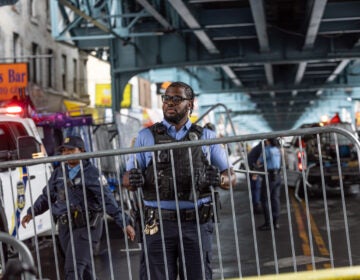Strategic Error in Afghanistan
What has been the worst mistake of our war against terrorism so far? The obvious choice is the decision to invade Iraq, a country which posed no threat to the U.S., but which resulted in thousands of U.S. deaths, hundreds of thousands of Iraqis killed and maimed, millions of Iraqis displaced from their homes, and a huge and continuing impact on the financial resources of the U.S. government and its taxpayers.
But in second place and coming on strong now is the surge into Afghanistan under President Obama and his adoption of a strategy of counter-insurgency and nation building there.
The terrible violence in Iraq continues, and all predictions are for open civil war there when we leave, for which we must share responsibility. But our error in Iraq is obvious to the whole world now, and at least the Iraqis are united in wanting the U.S. gone, which gives us a way out.
We went into Afghanistan to destroy Al Qaeda and to punish the Taliban for harboring them. We failed in the first mission but succeeded in the second. Having been removed from power for harboring Al Qaeda, the Taliban cannot be anxious, given the chance, to invite them back again.
How significant was Al Qaeda’s safe haven in Afghanistan? The tactical decisions behind the 9/11 terrorist attacks were made in other countries, many in the U.S. The strategic decision to attack the U.S. could have been made from anywhere. Al Qaeda has become a disparate group of self-contained terrorist cells rather than a central command structure. If Al Qaeda leaders should again find safe haven in Afghanistan, would we be any worse off with them there instead of Pakistan or wherever they are now?
Since Al Qaeda is no longer in Afghanistan, and since the Taliban by itself have never posed an existential threat to the U.S., why are we still fighting there? Increasingly it seems we are there to justify the decisions that have been made previously, and so that those already sacrificed shall not have been sacrificed in vain.
Yes, we understand that the Taliban have an archaic and to our minds reprehensible view of the role of women in society. But they are not the only ones who hold those views in that part of the world. Trying to change those views engages us in a culture war on a very large scale.
The alternative to the counter-insurgency and nation building strategy we have adopted in Afghanistan would have been a narrower counter-terrorism strategy by which we wage war only on those who directly threaten U.S. interests. At a time of financial crisis in the U.S., that would have been less expensive than the seemingly unlimited claim on U.S. assets posed by counter-insurgency and nation building. The war in Afghanistan is not an existential war for the U.S. that justifies the current level of expenditure, which we cannot afford to continue.
The escape of 500 Taliban fighters from a prison maintained by the Afghan government only highlights the difficulties of nation building. As in Iraq, I fear this is not going to end well for us.
WHYY is your source for fact-based, in-depth journalism and information. As a nonprofit organization, we rely on financial support from readers like you. Please give today.




